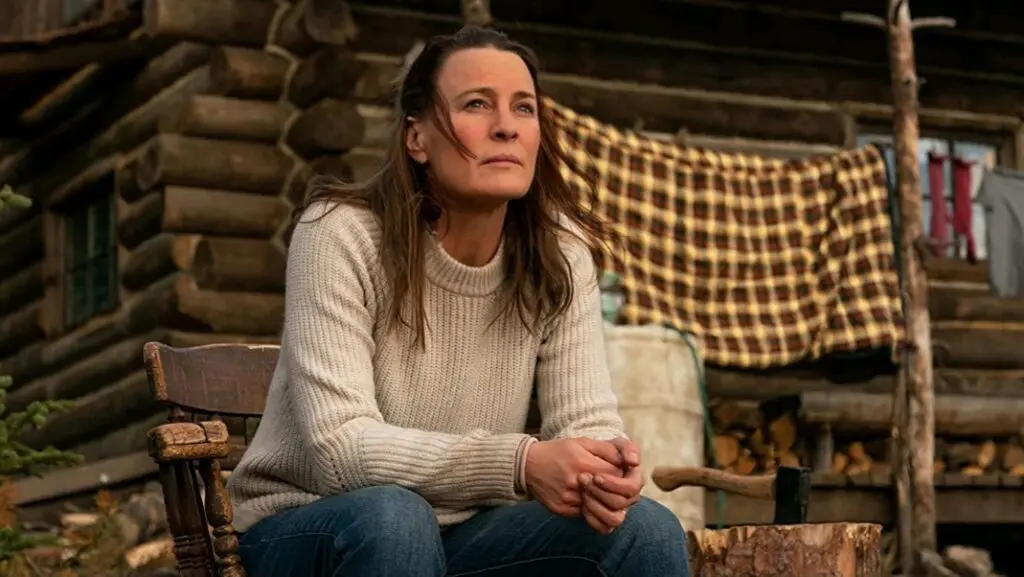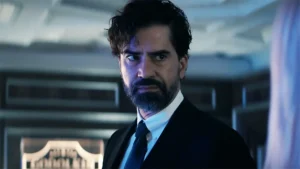Summary
Robin Wright’s Land is rooted in stoic ambivalence.
Robin Wright’s directorial debut, Land, is an exercise in stoic ambivalence. Don’t get me wrong, Wright is one of the most underappreciated actors of her generation. She can hold your gaze during a scene with those steel-blue eyes looking across that magnificent mountain vista. She can express copious amounts of emotion in a single scene, more than most can say in an entire monologue. The problem is the film tips its hand too early and often; leaving little for its audience to care about and hang onto through the picture.
Wright plays Edee, a successful lawyer who escapes the trappings of big-city surroundings and her own personal demons. In one of the most extreme cases of self-isolation one can see, Edee drops everything to move to Wyoming. She leaves it all behind and doesn’t tell anyone where she is going, not even telling her sister Emma (Gone Girl‘s Kim Dickens). She buys a dilapidated cabin in the Rocky Mountains without training, proper supplies, or running water, but has a quaint outhouse a half-mile from her new home. She pays the man she bought it from, Colt (Brad Leland of Friday Night Lights fame) to take back her car and U-Haul. This leaves this city mouse alone in the harsh wilderness and staring at a Christopher McCandless type of fate.
The script by Jesse Chatham and Erin Dignam has a superior talent in Wright to convey the symptoms of depression. In flashbacks, she has bouts of crying, a loss of energy, even a sense of worthlessness. While in the present time on the side of a Wyoming mountain, she can’t sleep, conveys a deep sense of sadness, and gets little pleasure in her outdoor trappings. Depression is a tricky subject to convey on camera. Is she grief-stricken? Suicidal? Despondent? Maybe even possibly hiding from someone or on the run?
Immediately the script patronizes its audience by revealing the utterly obvious backstory; it does everything but giving you an obituary to read during the opening credit. Land would have had a greater impact and intrigue if it kept the mystery of what was keeping Edee in self-isolation. Even the great Demián Bichir’s (A Better Life) Miguel, a local hunter how befriends Edee, has a backstory that foreshadows the plot so obviously, it conveys the message that the writers do not trust their audience.
The chemistry between Wright’s Edee and Bichir’s Miguel is evident, but not so much romantically. It’s more of a comfortable shoe. When two people, on similar paths in life, are lonely, and both suffering from grief, they find each other the way two wandering souls tend to. It’s an ambivalent friendship, between two stoic characters that don’t trust each other and want to keep one another an arm’s length away.
Therein lies the problem that’s rooted in Land. The film would have worked better if they left the flashbacks and setup behind, By not letting Edee’s backstory come up organically, the audiences lose their reward for completing Edee’s path to grieving isolation. Wright’s film was a noble effort, but an oddly cold one. That is the product of its insincere flashbacks and the patronizing journey it takes its audience on.




